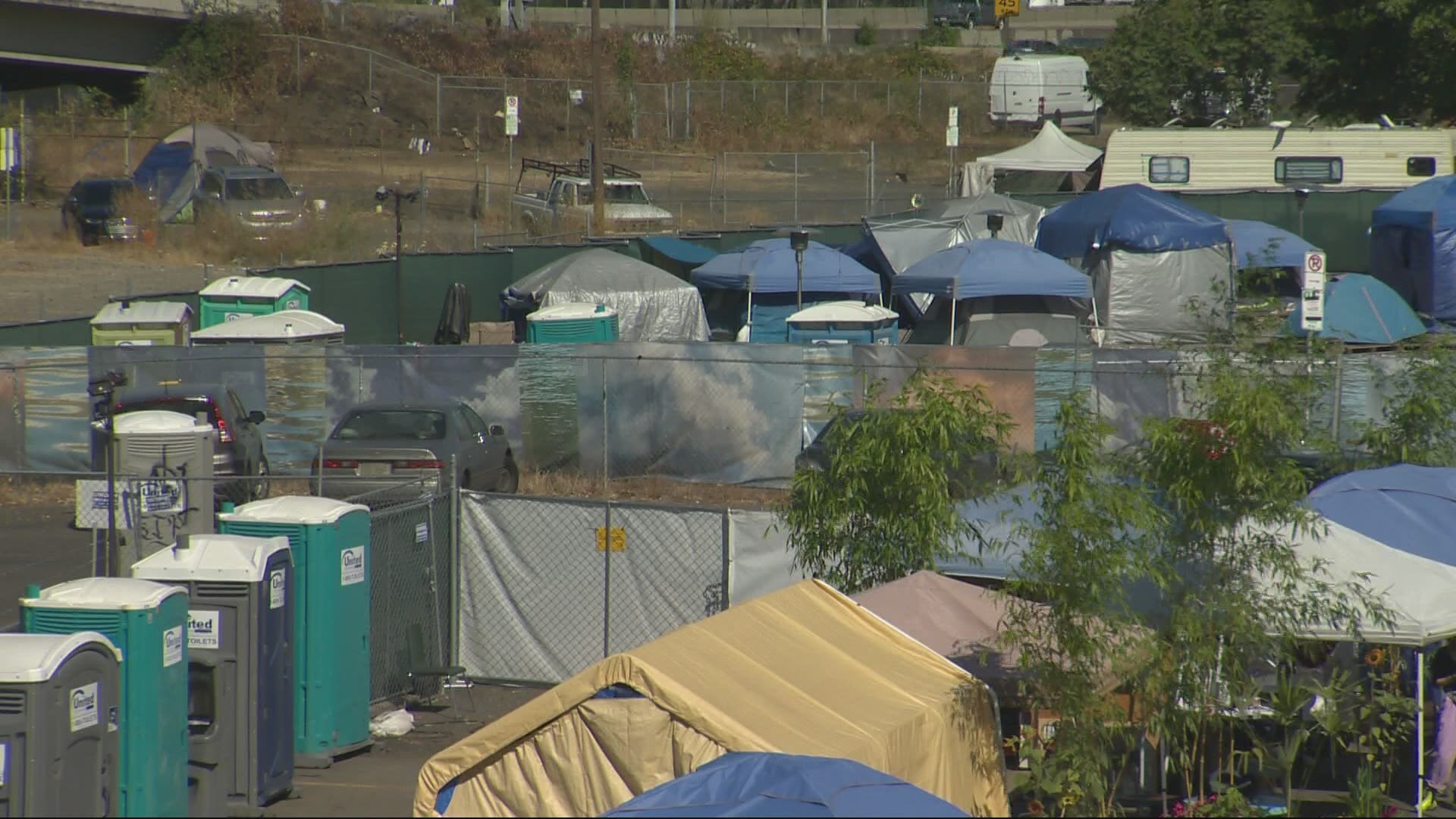PORTLAND, Ore. — More solutions seem to be coming for Portland's housing crisis.
The city of Portland and Multnomah County announced in a joint press release Thursday, officials are working on two separate, coordinating plans that would allocate historic amounts of funding towards housing services.
Multnomah County is planning to spend up to $1 billion over the next ten years. The city of Portland is adding an additional $20 million to create multiple outdoor camps that would provide those experiencing homelessness with a sheltered place to stay and services. The goal is to have six up and running by September.
The city's $20 million would come from money received from the federal government for COVID-19 relief. The county's $1 billion could come from homeless services tax measure voters passed in May of last year.
$20 million for "safe rest villages"
Portland Commissioner Dan Ryan said there's an ordinance in the works that'll be introduced to Portland City Council in the next two weeks and will formalize the funding.
In an interview with KGW, Ryan said the "safe rest villages" wouldn't be in just one part of town, they would be scattered throughout the city. Locations haven't yet been determined.
"Now it's an opportunity to get more specific, move into implementation, find those parcels of lands, and then make sure that we provide minimum services that are really necessary," said Ryan.
"That includes hygiene, and not just a honey bucket, but actually having an opportunity to have a shower, and also have your clothes be clean and then also have sanitation services."
Ryan said there are churches stepping forward, interested in offering their parking lots for these villages. Whether they're made up of tents or tiny houses, like the city has done before in other temporary housing communities, will depend on the location and land.
Funds from the homeless tax measure
Multnomah County Chair Deborah Kafoury says the money from the homeless tax measure doesn't kick in until July of this year, with 75% of the money focused on people who have been homeless for more than two years and considered 'chronically homeless.'
"Those are the majority of the folks that you see when you're walking around town, people who are living in tents, and also people who are living in our shelters," she said.
Kafoury also added just this year alone, the money from this measure will go towards getting 1300 people and their partners off the streets, out of shelters and into permanent housing by paying their rent. Up to 800 of these households will also receive services like drug and alcohol counseling, as well as mental health counseling.
"The fact that homelessness has become so visible to anybody in our community just shows that we really need to double our efforts to ensure that people get off the streets and into a safe, warm dry place," Kafoury said.

